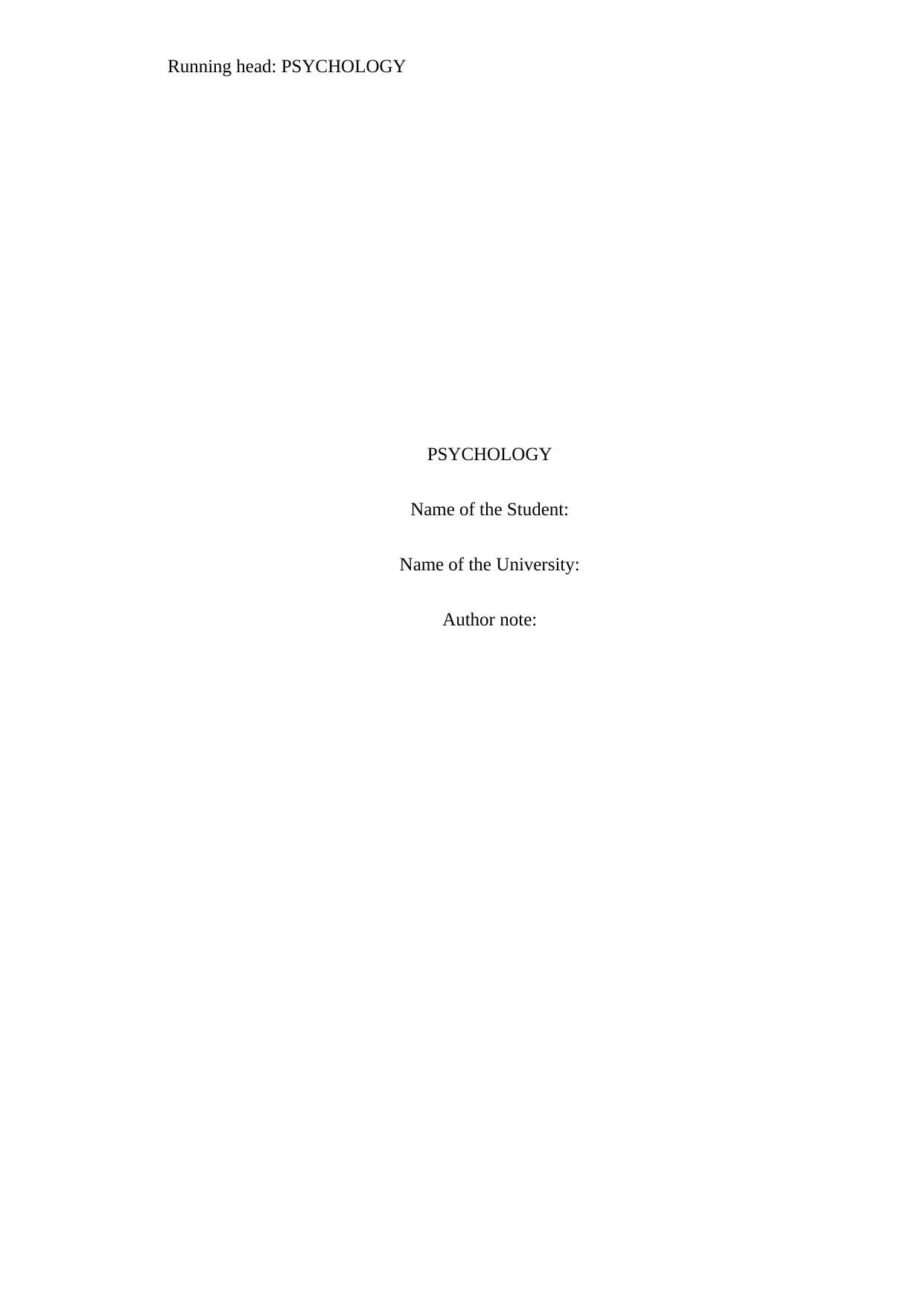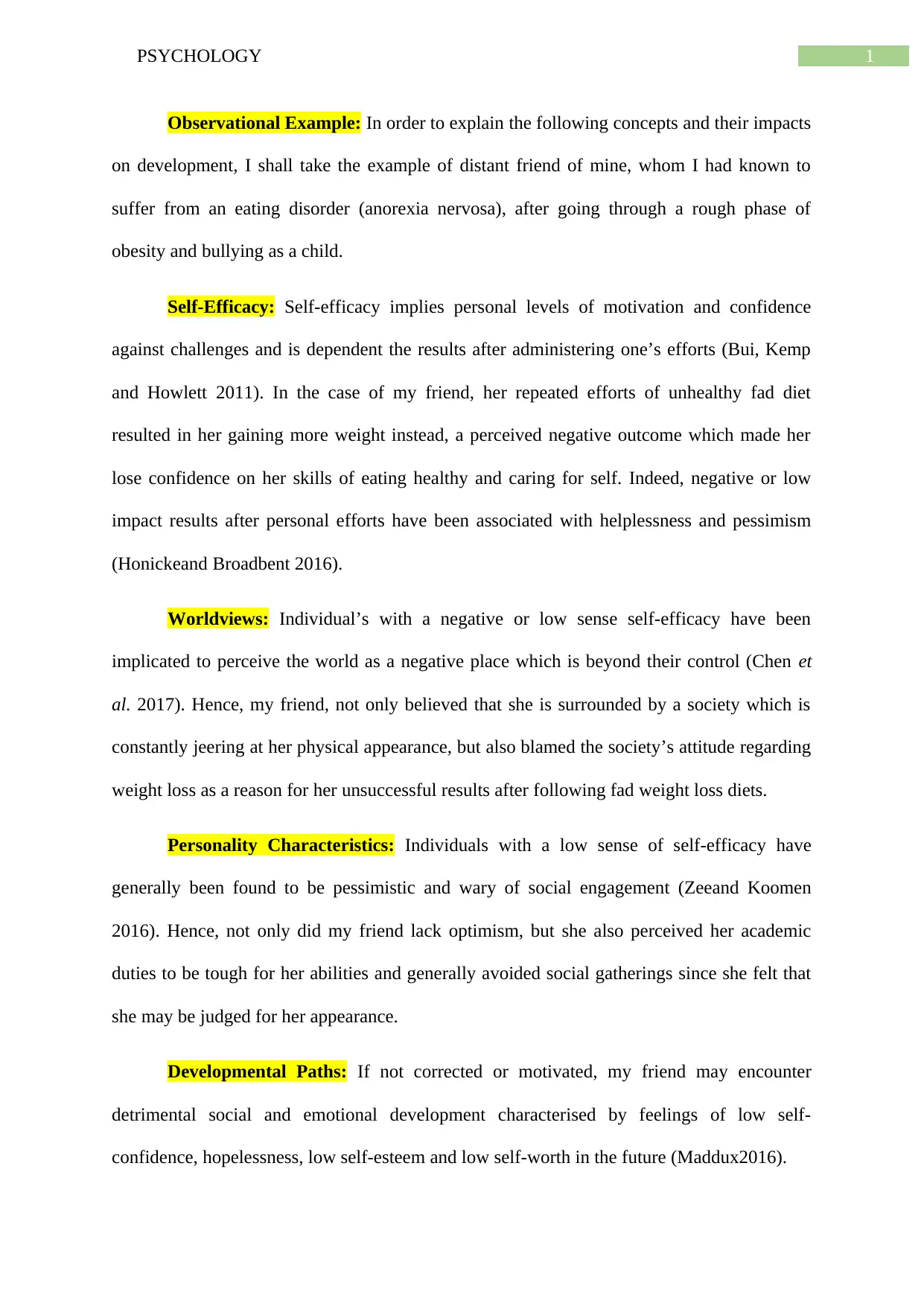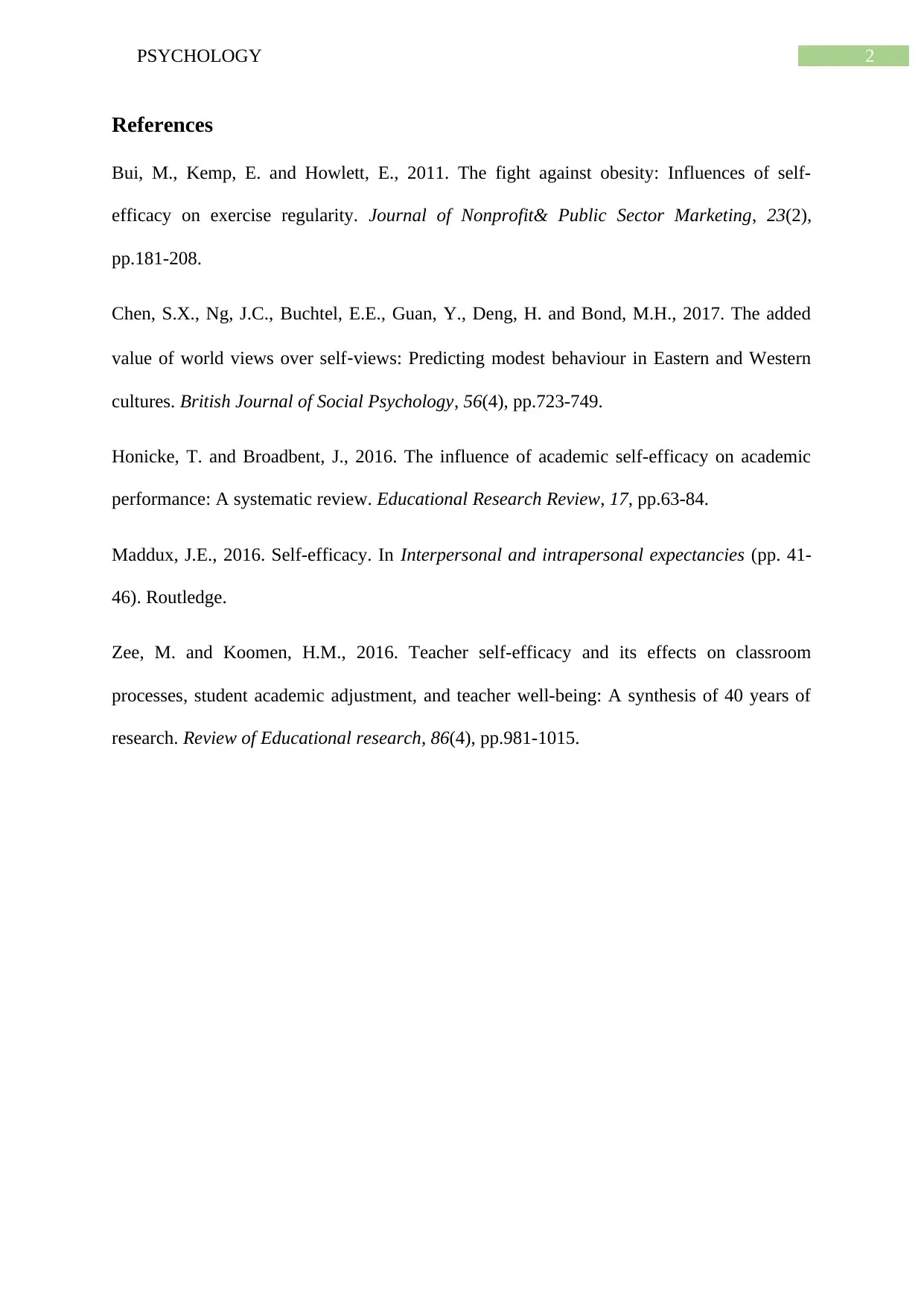Psychology Assignment: Exploring Self-Efficacy and its Influence
VerifiedAdded on 2023/03/20
|3
|565
|23
Homework Assignment
AI Summary
This psychology assignment examines the concept of self-efficacy and its impact on individual development, using a case study of a friend with an eating disorder (anorexia nervosa). It explores how self-efficacy, defined as personal motivation and confidence, influences worldviews, personality characteristics, and developmental paths. The assignment highlights the detrimental effects of low self-efficacy, such as pessimistic outlooks and avoidance of social interactions, and how these factors can lead to negative emotional and social outcomes like low self-esteem and hopelessness. The analysis references key psychological concepts and research to illustrate the complex interplay between personal beliefs, environmental perceptions, and behavioral patterns. The assignment concludes by discussing the potential long-term consequences of unaddressed issues related to self-efficacy, emphasizing the importance of intervention and support for individuals struggling with these challenges.
1 out of 3





![[object Object]](/_next/static/media/star-bottom.7253800d.svg)